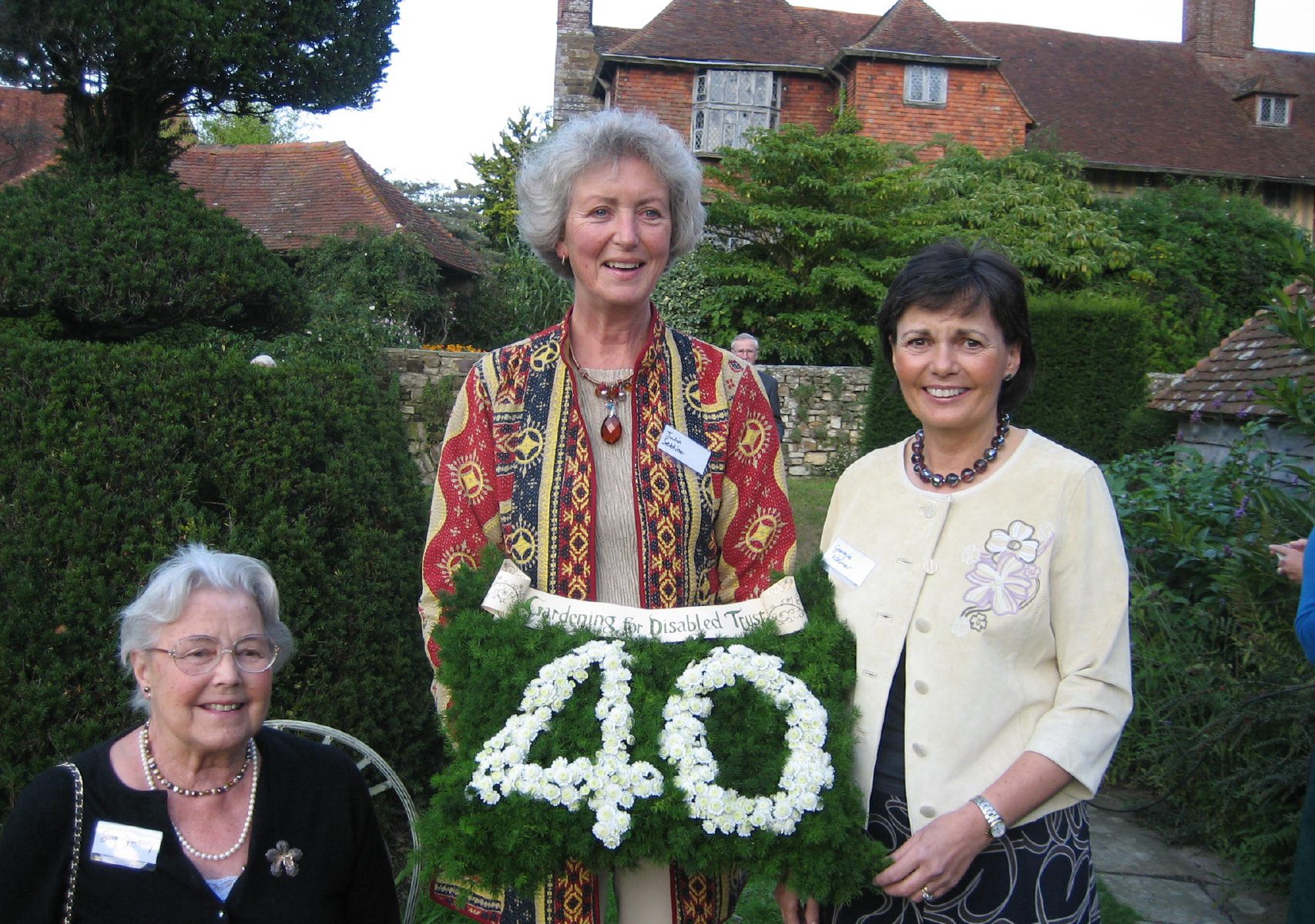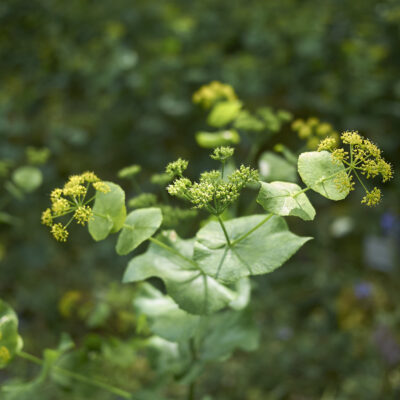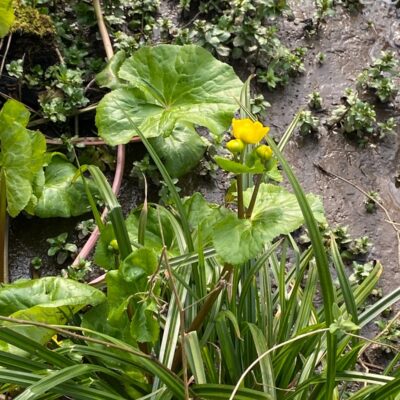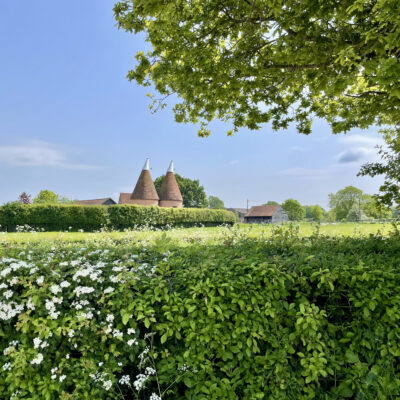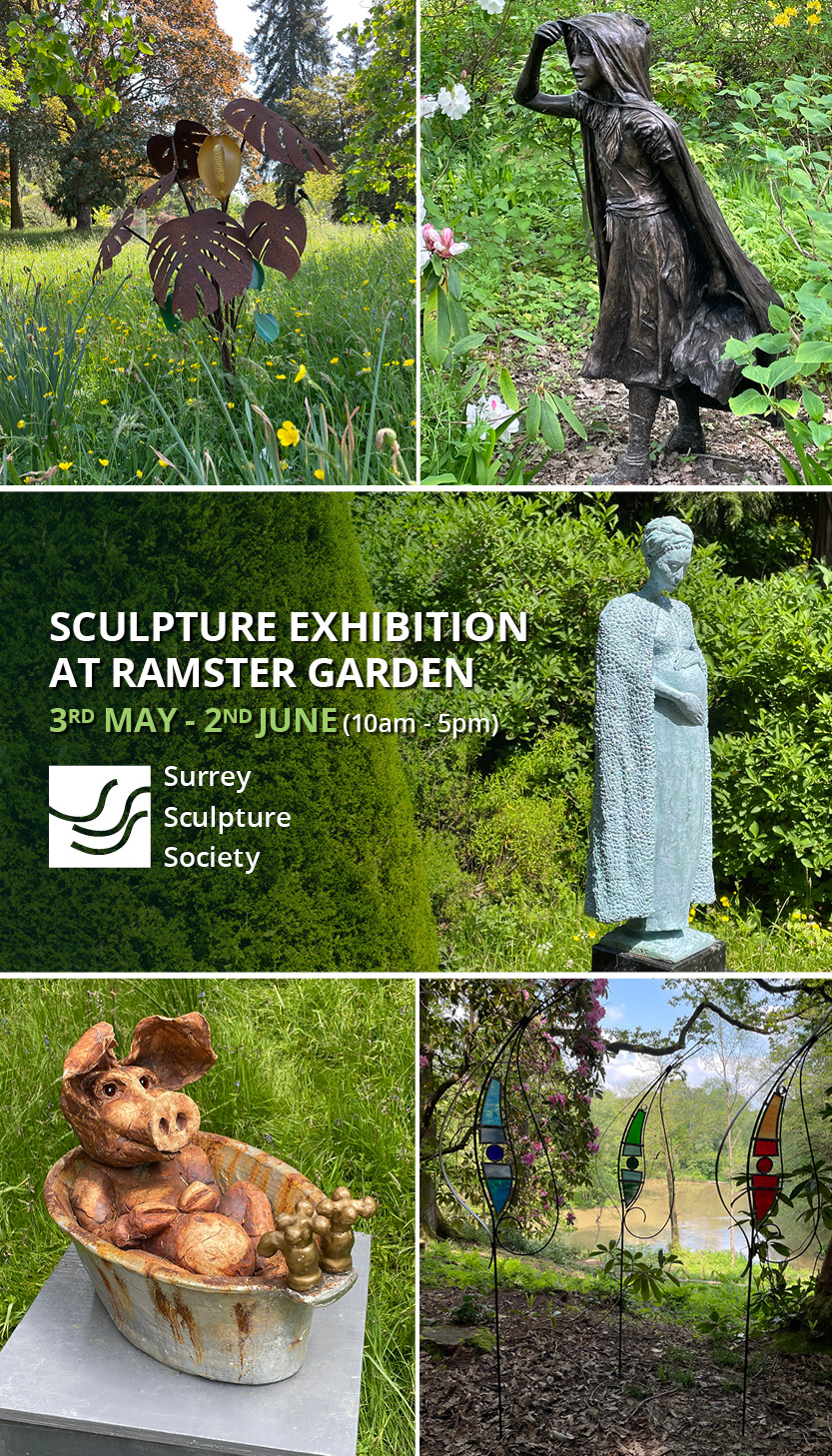Today one of our most stalwart supporters and long time Committee member, Gerry Stanbury, died peacefully at home. She had been a much-loved member of the GDT and had played a big part in its success since the early eighties. The Gardening for Disabled Trust has been run purely on a voluntary basis since its inception forty years ago and has had a series of extraordinarily long serving people on the Committee. Our last Secretary joined in 1982 and only resigned this summer coinciding with the charity’s fortieth birthday party held in the ‘rose garden hovel’ at Great Dixter during one of the wettest weeks of the year. Great fun, if a little dark by the end of the evening!
The Trust was founded by Peggy Kinsey, stepmother to one of our more recent Committee members. She was inspired to start something for disabled gardeners after visiting a Cheshire Home with her two young grandchildren. The Home had a garden but in those days it was pretty uninspiring and obviously not being actively used by residents. She felt that, should some of them wish to garden, she would help them to realise their ambition. To this end, she decided to start fundraising with a group of supportive friends. The first fundraising events were garden trips abroad, ably assisted by her husband, Major Kinsey, who thoroughly enjoyed the organising aspect of the enterprise. They were assisted by the kindness of a friend at Cadogan Travel who waived their normal charges.
Peggy Kinsey organised a display in Westminster Abbey many years ago and since then GDT have had stands at the Chelsea Flower Show and the Kent County Show, opera evenings, a cream tea party in the gardens of Lambeth Palace (this was memorable as we managed to get publicity from a London radio station. Queues formed through the garden at Lambeth and virtually down the adjoining streets. Our strawberries had to be divided into minute portions and we’d never worked so hard ,but what fun it was!), wonderful specialist nursery plant fairs in the spring and our annual Christmas fair which attracts a huge number of loyal people keen to crack their Christmas shopping in one go. Sometimes we benefit from legacies and the generosity of organisations like the RHS. Mavis Sweetenham, who used to organise the Chelsea Flower Show, was a great supporter. Sometimes we get smaller but welcome donations from people who have opened their gardens to the public.
What do we do with this money? Well, to give you an idea, this year we have given £27,000 in grants and requests are still coming in. Everyone is eligible and whilst the GDT is Kent/Sussex based, we aim to help people from all parts of the UK. Our criterion is to help people to ‘actively participate in a universal hobby’ and for people to be active within their particular capabilities. Applications for grants are usually received from people living at home and needing help or from societies that care for a number of residents who are either physically or mentally disabled. We are currently considering a project to provide a garden for a Hospital Home which cares for and rehabilitates disabled ex-servicemen between the ages of twenty-four and ninety-eight.
Gardeners are well used to hard work, but a gardener who has to contend with being in a wheelchair or is in constant pain is particularly challenged. So, we try to help by providing our clients with a garden which they can access, enjoy and actively garden in. Many disabled people have had busy lives in the past and it must be so frustrating for them to get to the stage in life when they can no longer get out into the fresh air and experience the satisfaction that gardening brings. Gardening is therapeutic; it concentrates the mind and quite simply brings a lot of pleasure. Even in the winter when the weather is not conducive to spending hours outside, the forward planning can be fun – thinking about what vegetables you might try next year, or poring over seductive seed catalogues to see what you absolutely have to grow next season.
Mrs. Kinsey said that the idea of getting the soil to the gardener, rather than the gardener getting down to the earth, was so simple. Why hadn’t we thought of it before? Raised beds are one of the things that the GDT help with. Once access is sorted out – perhaps the plot has had to be levelled and ramps and handrails provided or a smooth path laid – then thought can go into raising the ground levels by building raised beds using a variety of methods. These beds are great for disabled and able bodied people. Apart from anything else, the improved drainage means that the soil warms up more rapidly in the spring, giving plants a much earlier start, particularly in the vegetable garden. Also you can grow crops in the soil of your choice, a good solution if you have poor soil in your garden generally. There’s no need for heavy digging in a raised bed, just add organic material annually and some grit for drainage when you start, and this preparation will give you a perfect place to grow what you want. For vegetable growers – who’ll need even sunlight – aim to build the beds north to south and not to make your bed too wide. Brick-built beds are the most expensive as they need concrete foundations on a hardcore base but beds built out of gravel boards, or new railway sleepers, work well.
There are many tools on the market now to assist those with a weakened grip and limited mobility. Weak hands can require a larger handle on their garden tools, or longer handles on their hand tools, to cope with limited reach. Someone has suggested that rakes designed for use in golf bunkers are light and strong and are definitely worth a try. Loppers and secateurs with a ratchet action are useful and plastic, carbon fibre or aluminium tools are ideal as they are light. Wolf make auxiliary grips which can be attached halfway down the shaft of any tool. Gardena tools have multi-heads which can be changed with one hand.
Quite simply, each garden needs to suit a particular disabled person’s personal requirements, and we hope at the Gardening for the Disabled Trust to help our clients to adapt their gardens so that they can take pleasure from continuing to be able to garden.
Should you be interested in joining us, or wish to apply for a grant, the Trust can be contacted at: The Secretary, P.O. Box 285, Tunbridge Wells, TN2 9JD
TEST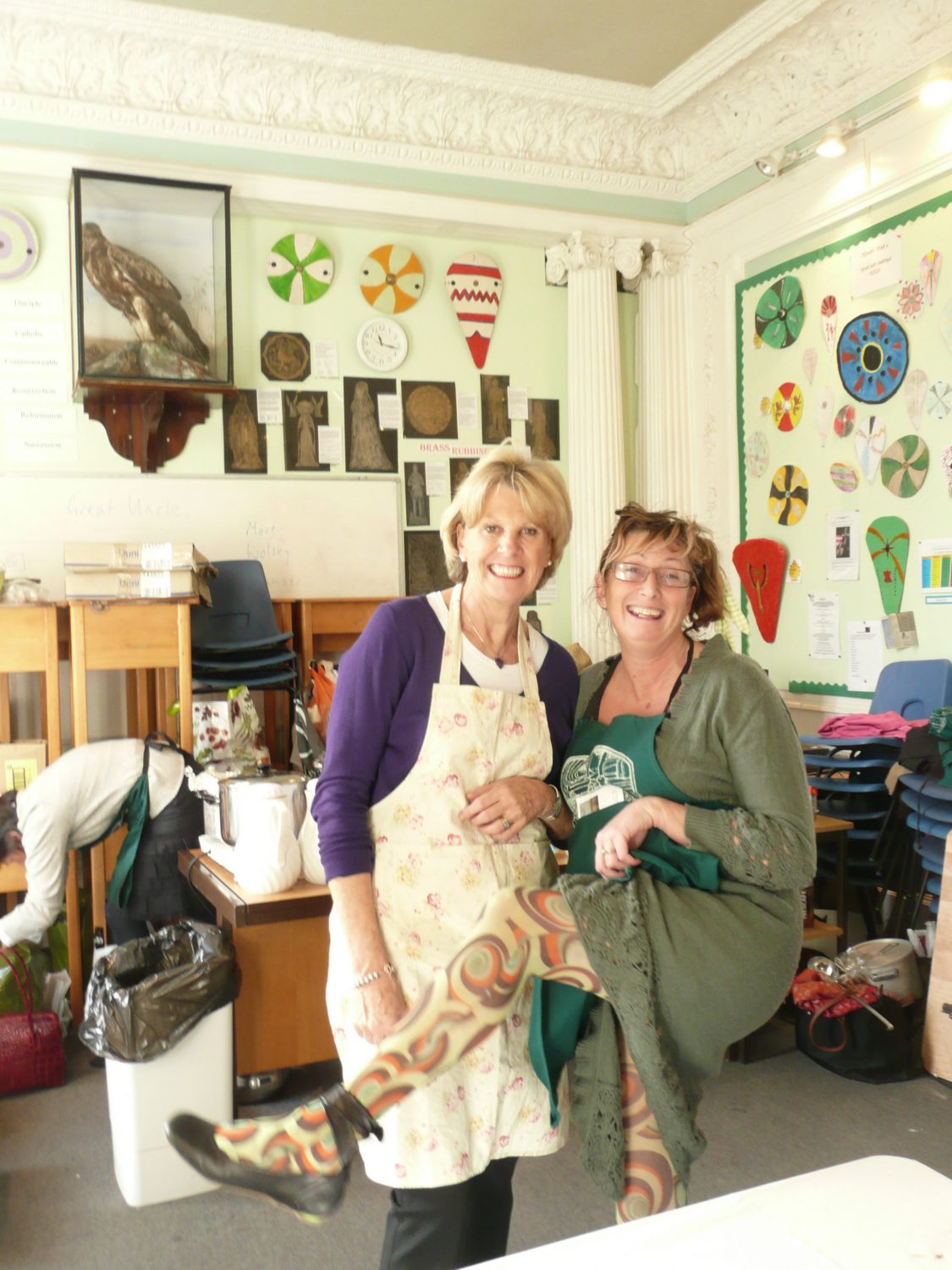
- words: Sue Whigham
You may also like
Go with the Flow
Sue Whigham shares some valuable new-to-gardening advice I’m sure that by now we should be used to the rain but I’m not entirely sure that we are. We had a dry, sunny day the other day and how everybody’s mood...
Farm Fables
Jane Howard gets to the bottom of why so many ponds have disappeared across the High Weald I have a new passion, almost an obsession, it’s about ponds. And there’s a distinct possibility I might become a bit of a...
Hedge Issues
Sue Whigham takes a meander along nature’s verdant and vital corridors Recently the BBC’s Today programme carried a feature about England’s hedgerows which created a lot of interest among listeners. On the strength of that, Martha Kearney interviewed one of...
